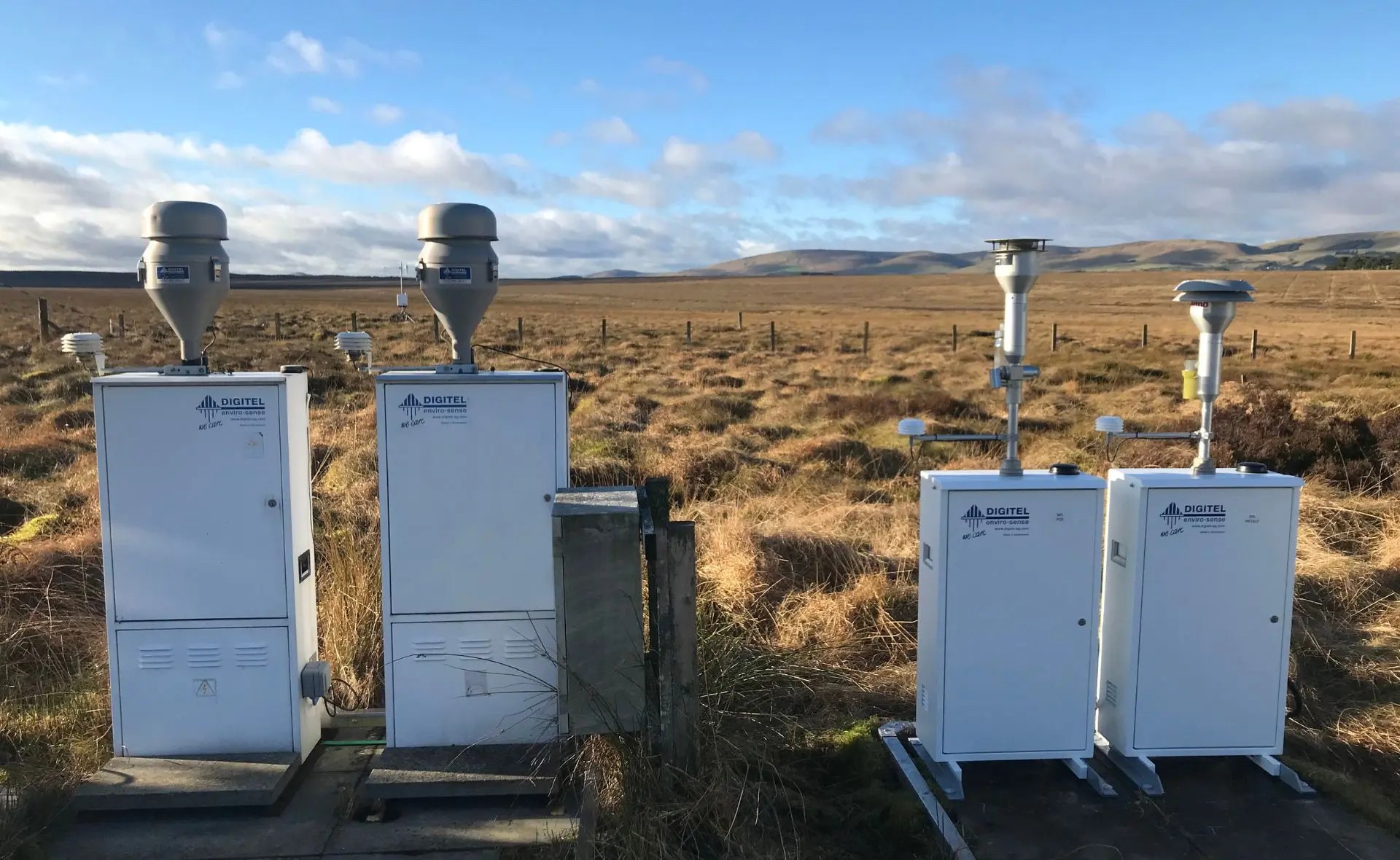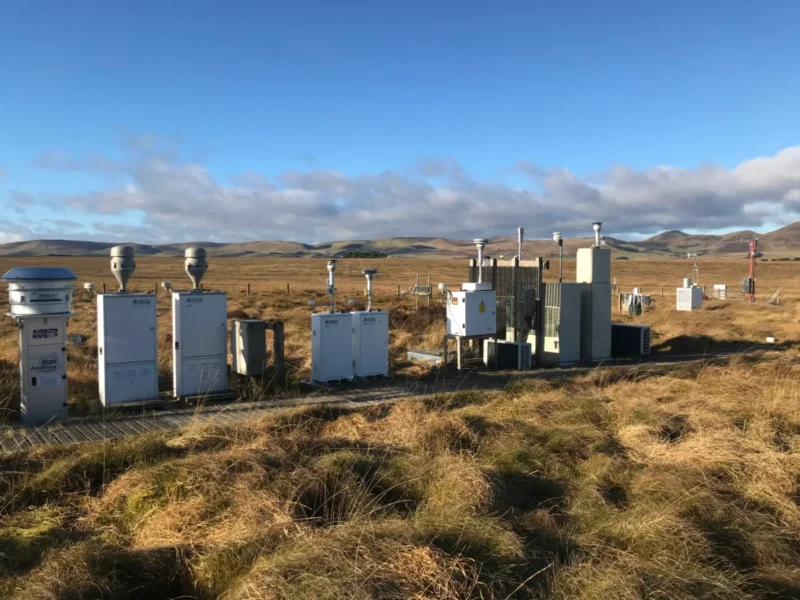Overview
One of the UK’s most significant research facilities for the study of long-term environmental change has benefited from our assistance as we’ve equipped them with gas analysers that have allowed them to carry out research on long-term atmospheric composition.
About the site
Auchencorth Moss Atmospheric Observatory (AMO) is a long-term monitoring research infrastructure situated on ombrotrophic peatland based approximately 18km south of Edinburgh. Consisting of 10km2 of a patchy mix of grasses and sedges, it lies on a base layer of typical peatland.
Its purpose is to carry out research on long-term atmospheric composition, surface-atmosphere exchange of pollutants and carbon catchments. As a result of the large number of parameters that are routinely measured at the site, it is part of a wide range of monitoring networks.
Originally (in 1994) the site was used to study methane fluxes, and the following year’s studies expanded to include sulphur dioxide and ammonia fluxes due to its peatland ecosystem and distance from emission sources. It has since developed into Scotland’s largest Air Quality Monitoring station being one of only two rural supersites in the UK currently.
Today AMO reports over 300 chemical and physical properties of the atmosphere and is used as a platform for many research projects operated by UKCEH Scientists, with all data publicly available on the UK-Air (DEFRA), Scottish Air Quality database, Natural Environment Research Council Data Repository for Atmospheric Science and Earth Observation (CEDA) and EBAS (ebas.nilu.no).
Monitoring equipment
With such a large scope of research depending on the site, it is equipped with state-of-the-art monitoring technology. ET supplied the site with Digitel High Volume and Low Volume Samplers over a period of time from 2011 to 2022.
In addition to the samplers, over the years ET has supplied other high-specification instruments to AMO including a Teledyne API T200UP Ultra Sensitive Chemiluminescence Analyser with patented high-efficiency Blue Light Converter (BLC) in 2016. The BLC provides a very specific conversion of NO2 with conversion efficiency, avoiding the interferences other methods would be affected by. This allows for consistent and accurate NO2 measurements.
For more information on the HVS or LVS samplers from Digitel, or the Teledyne API T200UP Ultra Sensitive Chemiluminescence Analyser available in the UK and Ireland through Enviro Technology Services, contact us at info@et.co.uk or ring 01453 733200.
















